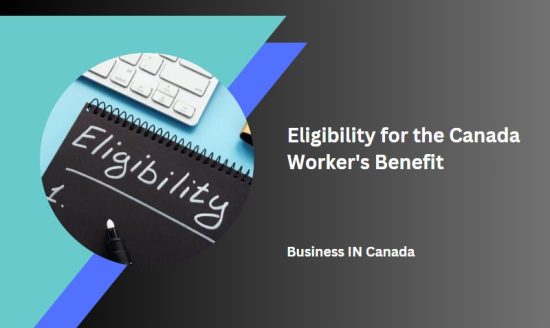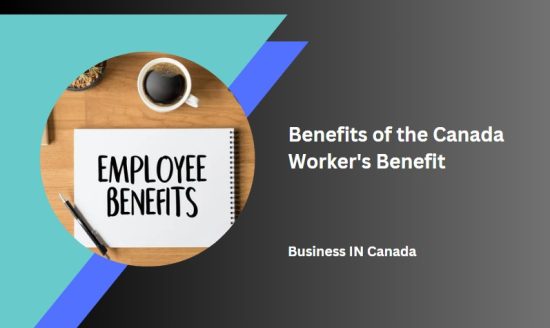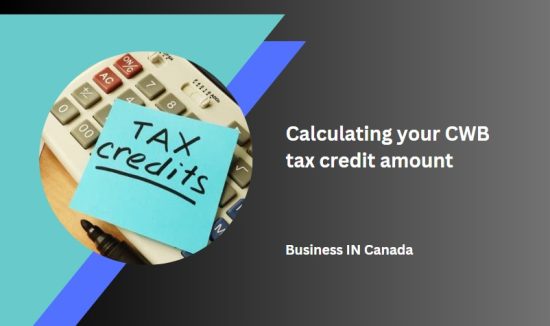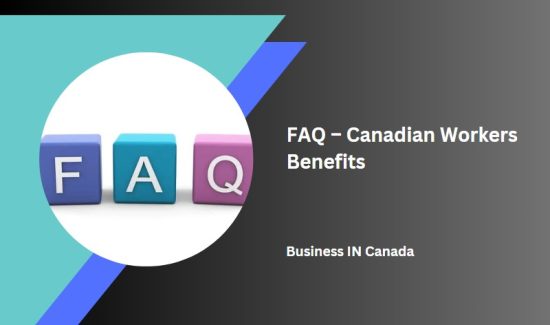Attention all workers in Canada! Are you familiar with the Canada Workers Benefit? If you haven’t, there’s no need to worry because we have everything for you. The Canada Workers Benefit (CWB) is a government program designed to help low-income individuals and families by supplementing their income through tax credits. In this blog post, we’ll dive into everything you need about CWB: who is eligible, how much money you can receive, and how to apply for it. So let’s get started on boosting your financial well-being!
What is Canada Workers Benefit?

The Canada Workers Benefit (CWB) is a refundable tax credit that helps low-income earners with the costs of working. The CWB is calculated based on your earned income and the number of eligible children in your care. If you are a single parent, you may also be able to receive the CWB if you are caring for an elderly or disabled family member. To be eligible for the Canada Workers Benefit, you must be:
- Working at least 30 hours per week
- A Canadian citizen or permanent resident
- At least 19 years of age (18 if you are self-employed)
- Not attending school full time
The amount of the CWB benefit is based on a sliding scale, so the more you earn, the less benefit you will receive. You can apply for the CWB when you file your annual income tax return. The benefit will be paid out in quarterly instalments throughout the year if you are eligible.
How Does it Work?
The Canada Workers Benefit is divided into two parts:
A basic value
Depending on your household income, marital status, and child(ren)’s age, your CWB could vary in size. Your CWB credit will be reduced by 12% if your income is higher than the individual or family level until you reach a higher income and lose eligibility. One member of each family may receive the benefit.
A disability allowance
You and your spouse or common-law partner may both qualify for a disability supplement if they are CWB qualified. Each person may be qualified to claim the disability tax credit. You’ll receive an additional $713 if you combine these two credits.
Once a year, you can request to have your CWB paid in one lump sum via direct deposit. Alternatively, they could divide half of your benefit into four equal annual payments and distribute the remaining amount as one lump sum once you’ve filed your taxes.
Eligibility for the Canada Worker’s Benefit

Loans Canada states that low-income earners are eligible for the CWB tax benefit. You must be at least 19 years old and a Canadian resident for the whole benefit year in order to qualify. You can still use the CWB credit if you are under 19 and have a spouse, common-law partner, or qualifying dependent. You can use form T2201 to request the disability tax credit.
Continue to be a full-time student at a designated institution for more than thirteen weeks during the tax year. You can only get the Canada worker’s benefit if you have a qualifying dependent. Additionally, you might not be eligible if you were a foreign diplomat, officer, servant, employee, or family member of one or if you spent 90 days or more in jail, prison, or another detention facility during the tax year.
How to Apply for the Canada Worker’s Benefit?
If you’re looking for information on how to apply for the Canada Workers Benefit (CWB), you’ve come to the right place. In this section, we’ll walk you through the process of applying for CWB step by step.
To apply for CWB, you’ll need to complete a short online application form. The form will ask you for some basic personal information and details about your employment situation and income. Once you’ve submitted the form, you’ll receive an estimate of your potential benefit amount.
If you’re eligible for CWB, you must provide additional documentation to support your application. This documentation can include things like pay stubs, tax returns, or other evidence of your income. Once your application is complete, it will be reviewed by a government agent. If approved, you’ll start receiving benefits within ten days.
If you have any questions about the CWB application process or need help completing the form, don’t hesitate to contact us. We’re here to help!
Benefits of the Canada Worker’s Benefit

The Canada Workers Benefit (CWB) is a tax-free monthly payment that helps to work Canadians with low incomes. The CWB is one of several programs that make up the Working Income Tax Benefit (WITB).
The maximum basic amount will be
- $1,428 for persons on their own
In the event that your adjusted net income exceeds $23,495, the amount is gradually lowered. If your adjusted net income is greater than $33,015, there is no basic payment made.
- $2,461 for households
In the event that your family’s adjusted net income exceeds $26,805, the amount is gradually reduced. No basic amount is paid if your family’s adjusted net income is greater than $43,212.
For Albertans, Quebeckers, and Nunavut inhabitants, the maximum basic CWB amount will be different.
The WITB encourages people to enter the workforce, stay in the workforce, and upgrade their skills. By supplementing the earnings of low-income workers, the WITB makes work more rewarding.
- For single people, the maximum disability benefit is $737.
If your adjusted net income exceeds $33,018, the CWB disability benefit is gradually reduced. If your adjusted net income exceeds $37,932, the disability supplement is not provided.
- For families, $737
If your family’s adjusted net income exceeds $43,210, the CWB disability benefit is gradually reduced. Suppose one spouse qualifies for the disability tax credit and your adjusted family. In that case, the net income is greater than $48,124. If both spouses qualify for the disability tax credit and your adjusted family net income exceeds $53,037, no disability supplement is paid.
Income requirements for CWB eligibility
In order to be eligible for the CWB, you must have earned income from employment in the past 12 months. If you are a student or a homemaker, you are not considered to have earned income and are therefore not eligible for the CWB. The amount of earned income you need to qualify for the CWB is based on your family size and composition.
For example, if you are single with no children, you must have earned at least $3,000 in the past 12 months to be eligible. If you are a single parent with one child, you must have earned at least $5,500 in the past 12 months to be eligible.
What factors make you ineligible for CWB?
A few factors can make you ineligible for the Canada Workers Benefit. If you are self-employed, have an investment income, or are already receiving a similar benefit from another government program, you will not be eligible for the CWB. Additionally, if your spouse or common-law partner is also receiving the CWB, only one of you will be able to receive the benefit.
Calculating your CWB tax credit amount

The overall amount you receive from the CWB may vary depending on a variety of circumstances. The Canada Revenue Agency may use the following details to calculate your CWB credit:
- The adjusted net income for the couple
- eligibility for dependents
- Individual disability tax credit eligibility
- annual earnings from employment
- Region or country of residence
- Status of relationships
- Eligibility of a spouse or partner
The CRA may determine your CWB as if you were single if you don’t have any children living with you, and if your spouse or partner is ineligible. Even though you both could qualify for the CWB, only one of you can get it. You can either choose your receiver or have the CRA choose one for you.
How can you get advance CWB payments?
The CRA permits taxpayers to prepay up to 50% of their workers’ compensation benefits. You can do this by logging into your CRA account, finding the Canada worker’s benefit advance payments application, and submitting it online. A different option is to finish form RC201 and mail it to the Sudbury Tax Centre.
You can submit your application before the deadline in order to help assure your eligibility for advance Canada worker’s benefit payments. The CRA does not process advance payments for applications received after the deadline.
Conclusion
The Canada Workers Benefit is an important federal program that provides financial assistance to low-income workers and families. This benefit can help those struggling to make ends meet, allowing them to gain greater economic stability. All Canadians need to understand what this program entails and how it can help them if they qualify for the CWB. With a bit of research, you should be able to determine whether or not you’re eligible for this valuable program.
FAQ – Canadian Workers Benefits

What is the benefit for workers in Canada?
There are many benefits that workers in Canada enjoy. One of the most important is the Canadian Pension Plan (CPP). The CPP provides a retirement income for Canadians who have worked and contributed to the plan. It is a key part of Canada’s social safety net and helps ensure that everyone has a basic level of financial security in retirement.
Other benefits that workers in Canada enjoy include Employment Insurance (EI), which provides temporary financial assistance to unemployed workers, and the Canada Health Act, which guarantees universal access to health care. These and other programs help to make Canada an attractive place to work and live.
How much is low income in Ontario?
In order to be considered low-income in Ontario, an individual must make less than $30,000 annually, or a family of four must make less than $50,000 combined. Ontario’s low-income residents are eligible for several government benefits and programs, including the Canada Workers Benefit.
What is the low-income benefit in Canada?
The low-income benefit in Canada is a government-sponsored program that helps low-income earners make ends meet. The program provides financial assistance to those working but earning a low income and helps with living costs, such as food and housing. The low-income benefit can be used for various expenses and a lifesaver for those struggling to make ends meet.
How much tax do you pay on 30000 salary in Canada?
In Canada, employees pay taxes on their income through the federal and provincial tax systems. The tax you pay on your salary depends on your province or territory of residence and your marginal tax rate.
For example, if you earn a salary of $30,000 and live in Alberta, your marginal tax pay is approximately $4524.93 in taxes.
The Canada Workers Benefit (CWB) is a refundable tax credit that helps low-income workers by providing them with additional financial assistance. The CWB is calculated based on your income and the number of children you have living with you.
What is the minimum living salary in Ontario?
The province has established a minimum wage to ensure that all Ontario workers can live with dignity. The minimum wage is $19.72 per hour. This means that full-time workers earning the minimum wage will earn a salary of approximately $31,000 per year.










